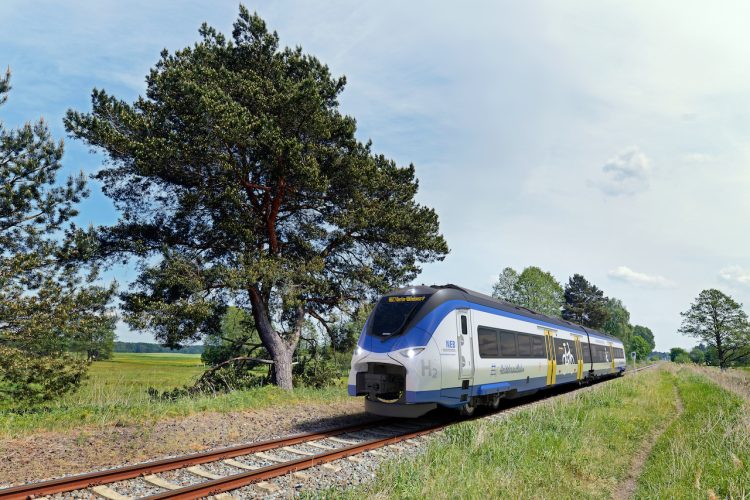Siemens Mobility is to deliver seven two-car Mireo Plus H trains in a commission by Niederbarnimer Eisenbahn (NEB)
The Mireo Plus H trains will serve the Heidekrautbahn network (RB27) in the Berlin-Brandenburg metropolitan region.
The second-generation hydrogen trains will include a fuel cell drive system and a lithium-ion battery to provide completely CO₂ emission-free mobility.
The trains are the first hydrogen-powered trains for the Berlin-Brandenburg metropolitan region.

Michael Peter, CEO Siemens Mobility said: “Today, traveling by train is by far the most climate-friendly way to travel. We are especially proud that our first order for a fleet of hydrogen-powered trains will also enable emission-free rail transport on non-electrified routes,”
“Our Mireo Plus H is a next-generation hydrogen train that combines innovation with sustainability. Thanks to its long range, faster acceleration, and state-of-the-art technologies, it will set new standards in zero-emission passenger transport.”
Detlef Bröcker, CEO Niederbarnimer Eisenbahn (NEB) said: “We are proud to operate the Heidekrautbahn, the first rail network in the Berlin-Brandenburg region that will be using hydrogen fuel cell trains,”
“With Siemens Mobility, Niederbarnimer Eisenbahn has an experienced and reliable partner at its side. The highly innovative hydrogen-powered trains are not only environmentally friendly, but also provide modern equipment and features tailored to the needs of our passengers. Moreover, the manufacturer's direct involvement in maintaining the trains will ensure a high level of security regarding train availability. By operating a technologically and ecologically upgraded railway, we want to actively support the energy and transportation transition and make local public transport for commuter service and tourism more attractive.”
The Mireo Plus H is an extremely advanced, second-generation hydrogen train which utilises a hydrogen-powered traction system with 1.7MW of traction power giving 1.1m/s2 acceleration with a top speed of 160km/h. The train also features the lowest lifecycle costs available with refuelling taking only 15 minutes. The train's energy-saving and environmentally friendly design are styled on its self-supporting, welded and integral lightweight aluminium construction. The Mireo also sees improved aerodynamics alongside energy-efficient components and intelligent electrical system management which helps to cut emissions and usage of resources.
The interior design of the two-car trains sees comfort as a key focus with plenty of space, free WiFi, dynamic real-time displays for passenger information, a designated family area, two multi-purpose areas with lots of space for buggies, wheelchairs and as many as twelve bicycles. The powered cars feature three doors on both sides which makes it easier for passengers in wheelchairs or with buggies to board or exit even on low platforms. New signage is also included in the cars which allows for fast, straight forward and barrier-free passenger exchanges.
The commission with Siemens Mobility comes with a ten-year service and spare parts contract (TSSSA) up to 2034 and will ensure the availability of trains for the entire term of the contract. The service contract not only included the provision of all necessary maintenance but also servicing and repair alongside ongoing development and adaptation of customer-specific use of the trains running on the Heidekrautbahn.
The introduction of hydrogen-powered trains on the Heidekrautbahn comes as part of a scientifically supported joint pilot project which is funded via the federal government and the states of Berlin and Brandenburg. The project aims to set up a regional, sustainable hydrogen infrastructure alongside a hybrid power plant and tank system. The RB27 line will see all operations carried out exclusively using green, regenerative and regionally produced energy and will be achieved by moving from diesel to hydrogen cutting Heidekrautbahn's annual CO2 emissions by approximately three million kilos, saving 1.1 million litres of diesel.
Siemens Mobility will deliver the hydrogen fleet during the autumn of 2024 with the trains expected to be in operation on the Heidekrautbahn network (RB27) in early December 2024.